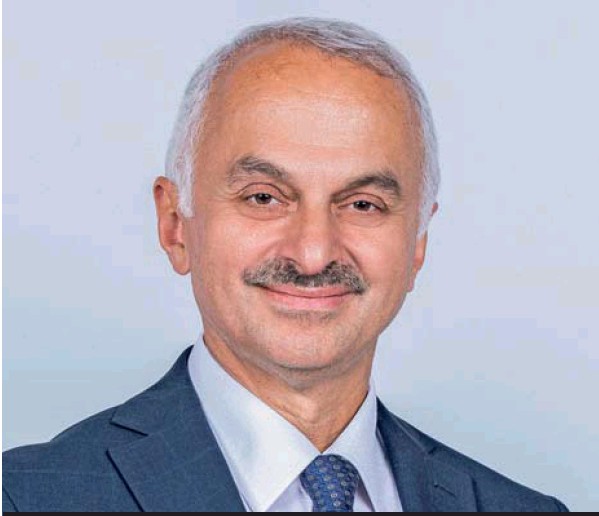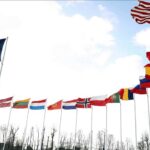By HAKAN GULDAG, VAHAP MUNYAR, SEREF OGUZ
“The TF-X Project will gradually replaces the
F-16s in the TAF’s inventory, making Turkey one of the few countries in the world, after the U.S., Russia and China, that can produce a fifth-generation fighter aircraft with its domestic infrastructure and technology.”
Q: TURKEY HAS RECENTLY BROKEN THROUGH IN THE DEFENSE INDUSTRY. HOW HAS IT ACHIEVED THIS?
A: The defense industry has shown steady growth over the last two decades with the resources provided by the government. The localization rate has reached 70%. Production rates have increased exponentially with localization. Defense industry projects have increased to nearly 700 as of today. The number of Turkish companies in the ‘Defense News Top 100’ list has increased to 7. In 2020, Turkish Aerospace Industries Inc.’s rank rose to 53rd from 69th place. In addition, the most important factor in global competitiveness today is whether each state can produce its own technology. Our government supports R&D, innovation and technology activities in all technology centers. Support programs such as the ‘Technology Oriented Industry Action Program’, provides important advantages for innovative investments. Extending Law No. 5746 on Supporting Research and Development Activities and Law No. 4691 on Technology Development Zones beyond 2023, which is currently being addressed in Parliament, will make important contributions to technology-intensive companies like ours.
Q: WHAT ARE TAI’S COMPLETED, ONGOING, AND FUTURE PROJECTS?
A: We’re continuing our work on space, aircraft, unmanned aerial vehicle (UAV), TF-X National Combat Aircraft (TF-X Project) and helicopter groups. Structural parts manufacturing activities for aircraft, which we consider TAI’s locomotive, is constantly developing with adaptations of new generation technologies and manufacturing processes. We are at the point of completing a new investment in our composites division with an indoor area of nearly 100,000 square meters. Besides what we manufacture for Boeing and Airbus, we will meet 2% of the world’s air structural composite needs with the facility, where aircraft and helicopter structural parts will be manufactured. Contributing directly to Turkey’s security, we continue to deliver the UAV ANKA. We delivered 25 units to the Turkish Armed Forces (TAF) and the ANKA-2 AKSUNGUR’s testing activities continue. The AKSUNGUR stayed in the air for 49 hours and flew with 12 units of smart micro munition (MAM-L) for 28 hours. We are also among the few companies in the world that has alternative helicopter production. Our helicopter manufacturing adventure started with the ‘T129 ATAK’, paved the way for the creation of original products such as the Heavy Class Attack Helicopter and GOKBEY. We have delivered the 57th ATAK helicopter to the TAF. The testing processes of GOKBEY, the first flight of which we have completed, are ongoing. We completed the first certification flight last year. It will start mass production as soon as possible. Another key project for Turkey’s future is the TF-X, which will reach the stage of a complete fuselage and installed engine this year. The TF-X Project will gradually replace the F-16s in TAF’s inventory, making Turkey be one of few countries in the world, after the U.S., Russia and China, that can produce a fifth-generation fighter aircraft with its domestic infrastructure and technology. The TF-X will be rolled-out on March 18, 2023. The project’s wind tunnel testing continues. We will continue the project’s design activities this year and review the preliminary design phase in the last quarter of 2021.
Q: IS THERE ANY INTERNATIONAL COOPERATION ON TECHNOLOGY TRANSFER FOR TAI ON THE HORIZON?
A: TAI used R&D to develop technology on its own to ensure its competitive position on a global scale. Our R&D investments exceeded 40% in 2020. New technological products emerged with such investments. We continue strategic cooperation with Boeing. We made an agreement with Boeing on technological cooperation in ‘thermoplastics manufacturing’. Moreover, developments in materials technologies are expected to make their mark in the next 10 years. We work as a ‘know-how’ production center in this field with our domestic composite materials development, additive manufacturing, new generation thermoplastics, composite and metal forming projects. We want to make TAI an hub for material technologies as a result of cooperation with national and international companies, universities and research centers. We conduct research projects on strategic technologies needed by TAI with our strong research staff in our technology centers.
Q: HOW MANY SUPPLIERS DOES TAI WORK WITH?
A: TAI works with nearly 100 auxiliary manufacturing companies in the manufacturing of our original products and structural parts for global giants. We chose our suppliers through a portal created via our website, meetings with urban clusters operating in the defense industry, visits to chambers of industry in coordination with the Presidency of Defense Industries (SSB) and within the scope of the Industrial Competency Assessment and Support Program (EYDEP), in coordination with SSB. We provide field engineering support for suppliers at product development points to help them improve within the scope of localization, and we train them at the TAI Academy.
Q: ‘INDUSTRY 5.0’ IS A HOT TOPIC AROUND THE WORLD. HOW CAN TAI AND THE DEFENSE INDUSTRY CONTRIBUTE TO TURKEY’S DIGITALI˹ ZATION JOURNEY?
A: Apart from today’s technologies, we manufacture designs, which have been impossible to produce to date, with additive manufacturing technology developed at our centers where we study innovative and disruptive technologies. We aim to reduce their costs and to bring crucial functions to our composite materials and fairings by using nano technologies. We also aim to increase our design power by developing our own simulations, to carry the the transition to electric vehicles in the automotive and aviation industries and to increase our market share by gaining the ability to manufacture and form thermoplastic material.










